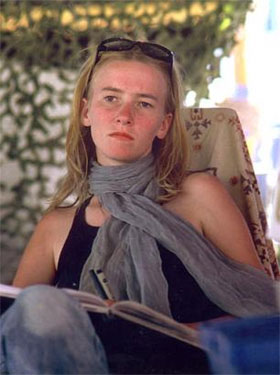Tag: Rachel Corrie
-
Colonel Pinhas (Pinky) Zuaretz to testify in Corrie trial Wed, April 27th
20 April 2011 | Rachel Corrie Foundation for Peace and Justice In a breaking development, an Israeli court has granted the State’s request to move the testimony of former Brigade Commander Pinhas (Pinky) Zuaretz to next week, Wednesday, April 27, nearly one month prior to his originally scheduled appearance. A 5-page affidavit for the witness…
-
Corrie trial resumes in Haifa court with testimony of bulldozer unit commander
29 March 2010 | Rachel Corrie Foundation After a five month recess, the Haifa District Court will resume hearings Sunday, April 3, in the civil lawsuit filed by Rachel Corrie’s family against the State of Israel for her unlawful killing in Rafah, Gaza on March 16, 2003. Rachel was an American student activist and human…
-
Special Tribute to Rachel Corrie in Iranian Weekly
16 December 2010 | Panjereh Weekly When I come back from Palestine, I probably will have nightmares and constantly feel guilty for not being here, but I can channel that into more work. Coming here is one of the better things I’ve ever done. As one of the biggest Iranian student movements has requested the…

